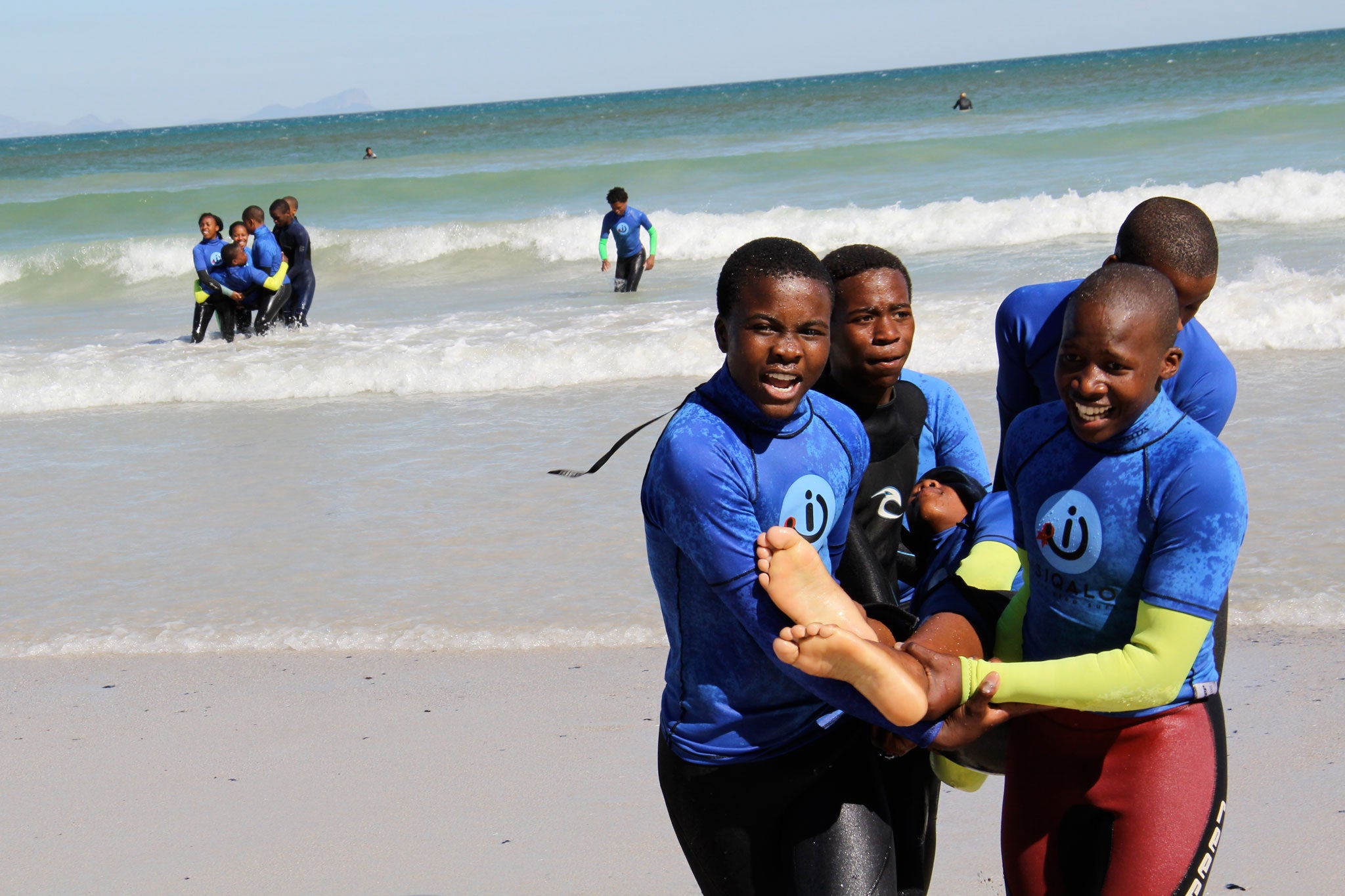In South Africa, sport and surfing is making Waves for Change in the fight against HIV
After a turbulent history, stigma still surrounds Aids in the Rainbow nation

Your support helps us to tell the story
From reproductive rights to climate change to Big Tech, The Independent is on the ground when the story is developing. Whether it's investigating the financials of Elon Musk's pro-Trump PAC or producing our latest documentary, 'The A Word', which shines a light on the American women fighting for reproductive rights, we know how important it is to parse out the facts from the messaging.
At such a critical moment in US history, we need reporters on the ground. Your donation allows us to keep sending journalists to speak to both sides of the story.
The Independent is trusted by Americans across the entire political spectrum. And unlike many other quality news outlets, we choose not to lock Americans out of our reporting and analysis with paywalls. We believe quality journalism should be available to everyone, paid for by those who can afford it.
Your support makes all the difference.It was a weekend back in 2008 when I found myself at an NGO function somewhere in Khayelitsha township, the vast sprawl of shacks and low-grade concrete housing encamped on the edge of Cape Town’s CBD. I’d been in South Africa no more than a week. I’d come to work on the vineyards and learn a trade that might one day keep me from the English winter.
The host NGO was concerned with HIV care and before me stood a woman, perhaps in her late twenties, with a beaming smile. I knew little about HIV. What little I did know was informed mostly by Christmas Campaigns and TV ads.
I remember her vividly, her voice and her eyes in particular, far removed from anything I expected and brimming with confidence and ambition. Within a couple of minutes of our meeting she told me she was HIV+, one of the 30 per cent of women in the township infected with the virus. I began to squirm, taken aback by her openness. She pressed forward, taking my hand despite my flinch.
"Don’t worry" she said. "Many people here are also scared".
Later that night, reflecting on the meeting, I remember being struck that my poor understanding of HIV wasn't much different from that of the people of South Africa, who live with the virus daily and should understand it better.
Pandemic
South Africa is at the apex of the worlds HIV pandemic. Of the 34 million HIV positive people in the world, 5.6 million of them reside within the rainbow nation. Cosmetically, the nation boasts many of the same hallmarks of its more successful neighbours who have, by and large, reported varying degrees of success in halting new infections.
Huge billboards promote condom use, radio shows promote a “first HIV-Free generation”, clinics – many state funded and more still product of a rich NGO sector – abound, dispensing free HIV testing and life changing anti-retroviral drugs. But still, no victory moment.
The public perception of HIV in South Africa remains precarious. The disastrous Mbeki administration - which denied the existence of the virus, cut funding for ARV drugs and condemned millions of South Africans to death - is survived by a deeply entrenched fear of HIV. A litany of euphemisms and nicknames still follow the virus and are invariably stapled to all affected, confining and condemning them to the margins of society.
Reflecting on my personal encounter in 2008, I wonder if the faceless billboard campaigns and anonymous radio advertisements overseen by Zuma’s increasingly discredited government can do anything to overturn the Mbeki legacy. As Zuma and his party lurch from one scandal to the next, the messages of fidelity and moral austerity his administration peddle are being laughed off, offering little hope of a solution.
Optimism
But, despite this, there remains reason for optimism. South Africa is a breeding ground for grassroots organisations, often with ideas reaching far above their stations. And it is through many of these organisations that South Africa today finds itself at the epicentre of a new movement, coined " Sport for Development", that is remodelling and repackaging HIV education into programmes capable of breaching the initial stigma and scepticism of the South African public.
From soccer and cricket, to polo and even surfing, the convivial surrounds of the sports field are being exploited to engage vastly different sectors of South African society, and on a mass scale. The simple tools of honest and open discourse are facilitated by play, with coaches and leaders gaining the trust of their communities and opening discussions on taboo issues that cut right to the bone.
To suggest that Sport is the elixir for a nation’s woe might be trite, but key leaders and thinkers including Nelson Mandela himself have attributed the power of sport to effect change. South Africa has been a nation adrift for some time now, its problems growing around it. As with any team, strong leadership will be needed to turn the public tide. Whether this comes from the football fields, a chance meeting at an NGO function, or the halls and chambers of the ANC’s Luthuli house, remains to be seen.
Click here to see a short film of the author's Waves for Change programme in action.
Join our commenting forum
Join thought-provoking conversations, follow other Independent readers and see their replies
Comments